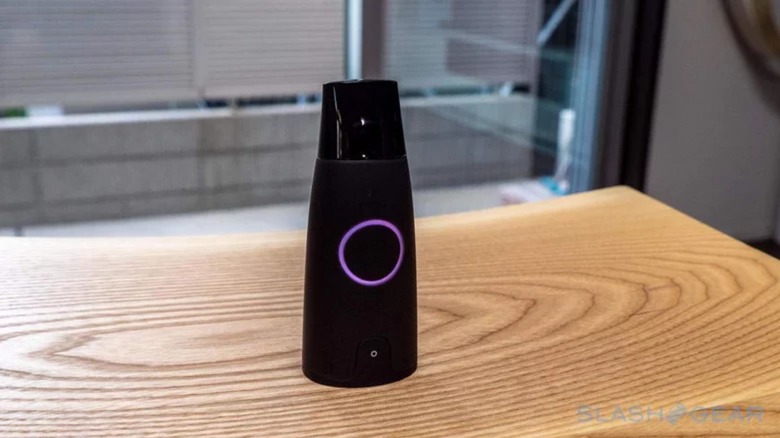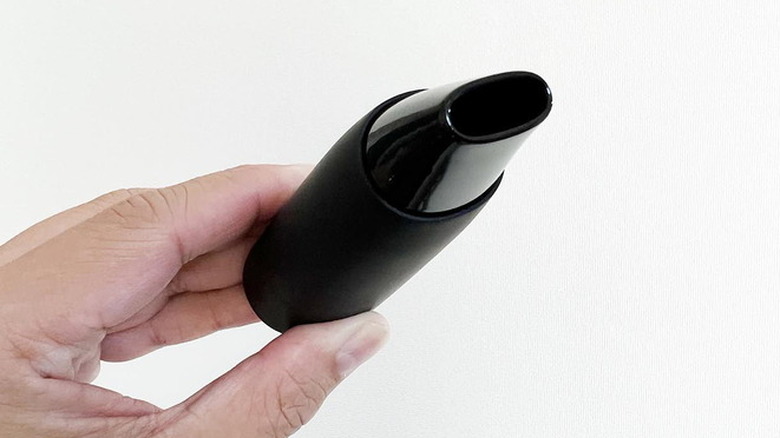Lumen Metabolism Tracker Review
- Portable and compact design
- Long battery life
- Accurate results (when properly measured)
- Helpful diet recommendations and insights
- Precise measuring can be tedious
- A bit expensive
While fitness trackers have been around for years, the events of the past year or two have only served to make people more acutely aware of the state that their bodies are in. The assortment of sensors in smartwatches also reveals how much of our own body's "output" can be used to indirectly measure our health or even our stress levels. Staying healthy, however, isn't just a matter of keeping track of our activities and heart rates but is also a product of the food we eat. Not all of us, however, can afford personal trainers or fitness gurus, which is why Lumen is offering a relatively more accessible alternative that makes use of one bodily emission that we take for granted, the carbon dioxide that we exhale. But is the Lumen metabolism tracker worth the price it is asking for? Don't hold your breath (pun intended) as we go into the science and the tech to find out for ourselves.
Metabolism is King
The majority of the personal fitness devices we have today tend to focus on tracking activities, heart health, bloody oxygen levels, and sleep quality. While good indicators of health, these figures don't always tell us what to do to improve things other than being more active or getting better sleep. Many fitness experts and trainers, however, will emphasize how diet is just as important as exercise since it significantly affects our body's metabolism or the way we convert food into energy. And that metabolism is exactly what Lumen measures in order to suggest what actions to take or, more specifically, what food to take.
The science behind Lumen is based on RER or Respiratory Exchange Ratio. In a nutshell, it analyzes the CO2 that we breathe out to determine whether we're burning fat or burning carbohydrates at that time. Burning fat in the morning is normal, while carbs that early means our body is still trying to digest last night's heavy meal. Conversely, burning fat before an exercise is a recipe for disaster, and you will want carbohydrates to be your fuel source during the day. Knowing that "respiratory quotient" and knowing what to do to fix unbalanced ratios isn't something smartwatches and fitness trackers can answer, and it's that important niche where Lumen is trying to find its market.
Design and Hardware
Since it's meant to measure the carbon dioxide you produce, it shouldn't be a surprise that Lumen isn't something you can wear. Its design resembles a breathalyzer or a vape device that is (somewhat ironically) on the rotund side. Its surface is mostly covered with a smooth matte material that makes it easy to hold while in use. The metal mouthpiece gives it a more premium look and feel but can also accumulate some saliva over a few weeks.
As something that's meant to be used almost anywhere, including the gym, the Lumen is fortunately lightweight and compact. It does come with a USB-C powered charging stand, but you, fortunately, don't need to do that regularly. The device's battery is advertised to last for around 14 days, which is probably more than enough time before you will need to take that dock out for a quick overnight charge.
Patience for Metabolism
Using the Lumen is habit-forming, which is both intentional but also frustrating. Like any system designed to study your habits long enough to offer personal recommendations, it takes a few days, around two weeks actually, before Lumen can actually start becoming useful. During those days, you might become impatient and even start doubting whether the metabolism tracker is all that it's cracked out to be, and it doesn't help that the experience can be a bit tedious or downright exasperating.
While you can take measurements anytime during the day, there are some key moments when you're required to use the Lumen in order to actually get anything out of it. The most important moments are 30 minutes after you wake up in the morning, before you sleep, as well as before and after eating. You're also encouraged to take a measure before you exercise so that you can be advised whether you need to eat something before trying to sweat it out. It's almost too easy to forget these moments, especially when you're starting out, which is why the two-week weaning period is probably important.
Unfortunately, Lumen can be pretty picky in how you do the measurements, and even the slightest excess in force or time will see you retaking the test again. The results are pretty accurate, though, which is probably why the software insists on precise measurements. It will definitely test your patience and might require more than just a few attempts to satisfy Lumen's requirements.
Dietician at your Fingertips
It is, however, worth the effort when you finally start getting your scores, alerting you to whether you're burning fat or carbs at the time of the measurement. Unlike fitness trackers and more like complete fitness programs, Lumen doesn't just tell you the state of your metabolism. It also informs you what to do next, which is mostly in the form of changing your diet.
Lumen will recommend meals that will either give you more fat or more carbs for the next activity, often to produce better metabolism flexibility so that your body can more easily switch between those fuel sources. The app and program, however, go beyond simple recommendations and can offer alternatives to certain ingredients or foods that might be allergens or might not be available locally. Even if you decide to ignore those suggestions, it could at least give you an idea of what an ideal meal should look like.
Lumen also goes beyond just presenting numbers and offers information that makes sense of those. It's almost encyclopedic in explaining how body metabolism works, how certain foods affect it, and how to develop good habits to increase metabolic flexibility. These are the things you'd normally pay trainers, dieticians, and doctors for, but Lumen lets you "hack your metabolism" at a certain price, of course.
Wrap-up
The Lumen's simple, nondescript design belies the science and the technology packed inside the portable breathalyzer, not to mention the amount of knowledge you can get out of it in exchange for a few breaths. More than just the device itself, Lumen provides insights, personalized diet recommendations, and alternatives that all work together in promoting metabolic flexibility without having to hire people to keep you on your feet. Unfortunately, getting to that point involves not just a lot of testing but even more patience, as the device's algorithms can be unforgiving when determining what passes and what doesn't.
The Lumen Metabolism Tracaker isn't an inexpensive personal health device either. It starts at $249 for a 6-month "track," while a $349 purchase sets you for 18 months of personalized diet plans. After that period, you do need to subscribe to a $19 per month program, so the total cost will add up. Then again, you will probably have to pay more to hire professionals, which might not even be an option for some people anyway.

